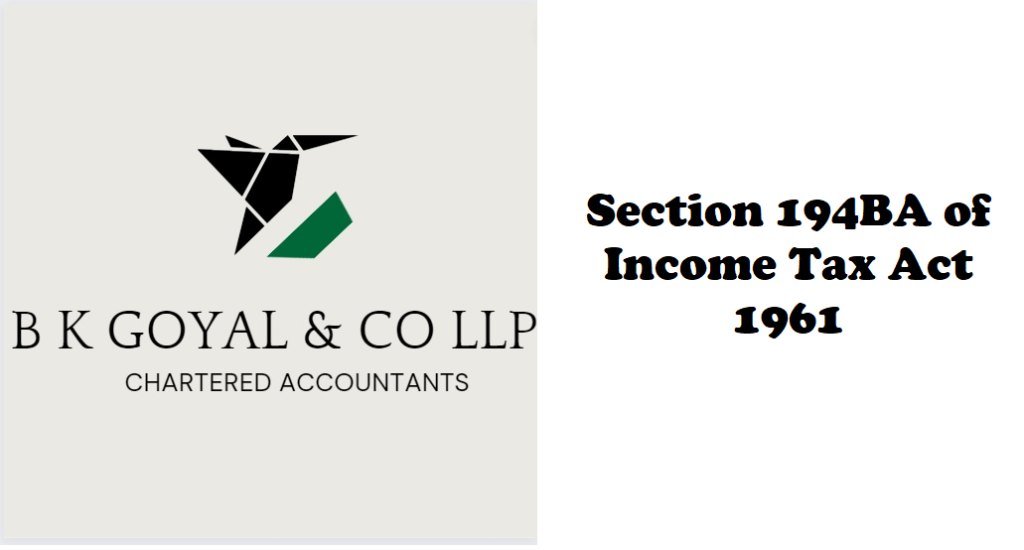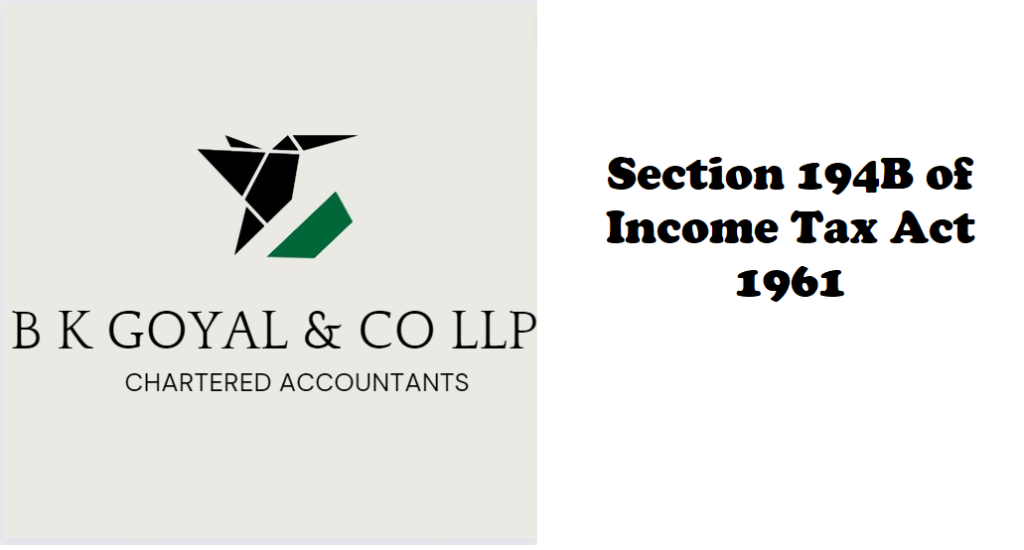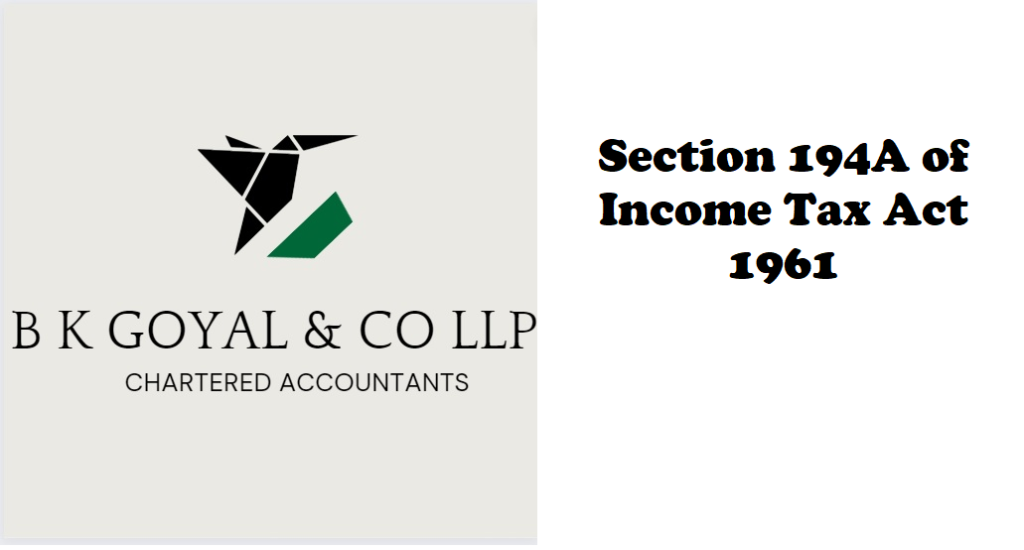Section 194BA of Income Tax Act 1961
Winnings from online games (1) Notwithstanding anything contained in any other provisions of this Act, any person responsible for paying to any person any income by way of winnings from any online game during the financial year shall deduct income-tax on the net winnings in his user account, computed in the manner as may be prescribed, at the end of the financial year at the rates in force: Provided that in a case where there is a withdrawal from user account during the financial year, the income-tax shall be deducted at the time of such withdrawal on the net winnings comprised in such withdrawal, as well as on the remaining amount of net winnings in the user account, computed in the manner as may be prescribed, at the end of the financial year. (2) In a case where the net winnings are wholly in kind or partly in cash, and partly in kind but the part in cash is not sufficient to meet the liability of deduction of tax in respect of whole of the net winnings, the person responsible for paying shall, before releasing the winnings, ensure that tax has been paid in respect of the net winnings. (3) If any difficulty arises in giving effect to the provisions of this section, the Board may, with the previous approval of the Central Government, issue guidelines for the purposes of removing the difficulty. (4) Every guideline issued by the Board under sub-section (3) shall, as soon as may be after it is issued, be laid before each House of Parliament, and shall be binding on the income-tax authorities and on the person liable to deduct income-tax. Explanation.—For the purposes of this section– (a) “computer resource”, “internet” and “online game” shall have the meanings respectively assigned to them in section 115BBJ; (b) “online gaming intermediary” means an intermediary that offers one or more online games; (c) “user” means any person who accesses or avails any computer resource of an online gaming intermediary; (d) “user account” means account of a user registered with an online gaming intermediary.] Practice area’s of B K Goyal & Co LLP Income Tax Return Filing | Income Tax Appeal | Income Tax Notice | GST Registration | GST Return Filing | FSSAI Registration | Company Registration | Company Audit | Company Annual Compliance | Income Tax Audit | Nidhi Company Registration| LLP Registration | Accounting in India | NGO Registration | NGO Audit | ESG | BRSR | Private Security Agency | Udyam Registration | Trademark Registration | Copyright Registration | Patent Registration | Import Export Code | Forensic Accounting and Fraud Detection | Section 8 Company | Foreign Company | 80G and 12A Certificate | FCRA Registration |DGGI Cases | Scrutiny Cases | Income Escapement Cases | Search & Seizure | CIT Appeal | ITAT Appeal | Auditors | Internal Audit | Financial Audit | Process Audit | IEC Code | CA Certification | Income Tax Penalty Notice u/s 271(1)(c) | Income Tax Notice u/s 142(1) | Income Tax Notice u/s 144 |Income Tax Notice u/s 148 | Income Tax Demand Notice Company Registration Services in major cities of India Company Registration in Jaipur | Company Registration in Delhi | Company Registration in Pune | Company Registration in Hyderabad | Company Registration in Bangalore | Company Registration in Chennai | Company Registration in Kolkata | Company Registration in Mumbai | Company Registration in India Our Offices CA in Delhi | CA in Jaipur | CA in Gurgaon | CA Firm in India
Section 194BA of Income Tax Act 1961 Read More »









